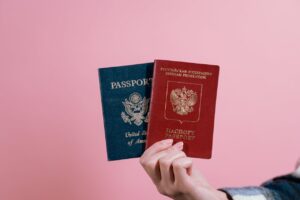With the holidays approaching, more people–both American and non-Americans–will be passing through US airports. When traveling across borders, it is important to know what to expect, and to know what your rights are if things don’t go as planned.
For many years, travelers have complained (both formally and informally) about having their privacy violated by customs officers when arriving in the US. The most common complaint is that customs officers are searching and copying phones, tablets, and laptops without a warrant, and forcing travelers to wait for many hours in secondary inspection while they conduct the search.
Customs officers have the authority to randomly search personal electronics of all travelers, and they do it at alarming rates.
If you are a US citizen or Lawful Permanent Resident, CBP (Customs and Border Protection) officers must allow you to re-enter the country, but they may make it very difficult before they do. For visitors and other nonimmigrants, customs officers reserve the right to deny you entry altogether (even if you have a valid visa issued by a US consulate or embassy abroad, as was the case with one Harvard freshman this summer).
Even travelers with valid travel permits (“Advance Parole”) or re-entry permits are likely to encounter issues with CBP. It is not uncommon to be asked to go through secondary inspection even after showing your valid travel permit, and you may be questioned extensively about the nature of your trip and what you do in the US.
CBP currently issues this info sheet to travelers who are chosen for inspection of electronic devices, which indicates that some searches are selected at random, and does not include information about the option to have legal representation. While travelers are technically able to refuse to provide customs officers with their electronic devices, this will likely result in significant delays and issues. It is likely that the requested search will be escalated and they may detain you even longer if you are not cooperative.
The frequency of these incidents has increased over the years, and the ACLU (American Civil Liberties Union) and other civil rights organizations have been regularly engaged in lawsuits with the federal government about whether or not searches of electronic devices at the airport violates constitutional rights. According to data compiled during an ACLU lawsuit against the CBP, the number of electronic devices being searched has increased significantly over the past several years, growing from approximately 8,500 in 2015 to 33,000 in 2018.
A Federal Judge recently ruled random searching of electronic devices unconstitutional.
In a recent development, on November 12, 2019, a US District Court in Boston, Massachusetts issued a landmark ruling that all electronic device searches must be justified by a reasonable suspicion and cannot be conducted at random as is often the case. The ruling came as a result of a lawsuit filed by the ACLU and the Electronic Frontier Foundation who represented 11 individuals whose laptops and smartphones were searched without any indicated suspicion or cause.
This ruling is a significant step toward protecting traveler’s privacy rights, as ICE and CBP have long tried to argue that Fourth Amendment privacy protections do not apply to travelers crossing the border. Unlike with other types of searches, CBP has not needed to obtain a warrant or prove reasonable suspicion before requesting access to personal items, and has even forced travelers to unlock devices and log in to their private accounts.
What can you do to protect your privacy at the airport or border?
Given the fact that this ruling is very new and CBP officers have been known to disregard certain policies or best practices in the past, it is still extremely important to know and defend your rights at the airport or when crossing the Canadian or Mexican border into the US by car.
If you are worried about giving CBP officers access to your personal or private information at the airport, it is a good idea to simply bring as little with you as possible. Attorneys often advise travelers, including US citizens, to encrypt their devices or leave anything that they do not need for their trip at home. Of course, most people cannot travel without their smartphones, so a search of your phone (including your photos, emails, and text messages) may be difficult to avoid.
If you must travel with electronic devices, it may be a good idea to carry a letter from your attorney reminding the customs officer of your rights and explaining that you will be legally represented should CBP choose to detain you. US citizens and Lawful Permanent Residents have the right to request a lawyer, but the government is not always required to provide you with one. If possible, you should always make your lawyer aware of your planned travel before you leave and contact them as soon as you feel that your rights are being violated.







